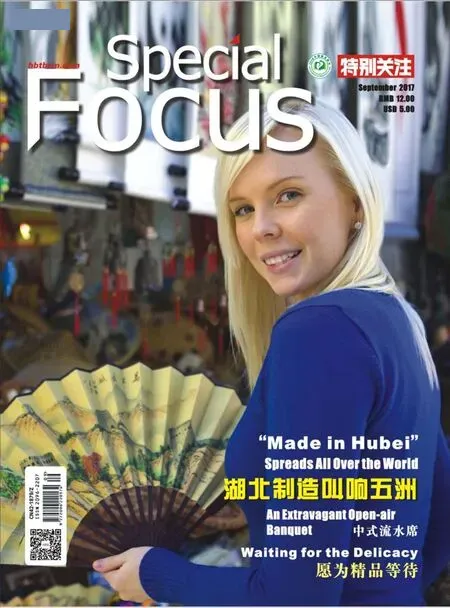On“Gui”
By Zou Xinsheng
On“Gui”
By Zou Xinsheng
The Chinese character 贵(guì)conjures up a profound image in Chinese people’s minds as well as in traditional Chinese cultures. Actually, the character 贵combines three parts, the upper part is 中(zhōng), which means “within, inside, among,in the center” in Chinese; the middle part is一(yī), which means “top, above ,one,number one”; the lower part is 贝(bèi), which means “shell.” As we know, in ancient China and some other parts of the world, the shell was once used as a monetary currency,denoting something valuable, expensive, and precious.
In a Chinese cultural context, the connotations of the character 贵have been amplified with the passage of the time. The most original and prevalent meaning of 贵 is “expensive, costly,” which was illustrated in Shuowen Jiezi (origin of Chinese Characters), the first Chinese Dictionary known in history. The famous idiom 洛阳纸贵(Luòyáng zhǐ guì) is the best example for the meaning. In the Western Jin Dynasty, an unknown poet named Zuo Si created a famous literary poem “Ode to Three Capitals” in the then capital city Luoyang. The ode stirred up such a sensation that people in Luoyang flocked to the stationary shops because they were afraid of the shortage of papers, for everyone was copying the Ode. Thus, paper became more expensive than usual.
Many foreigners are extremely perplexed about the greetings in China. When two Chinese people meet for the first time, especially among the strangers, they ask each other’s age and name by adding the character 贵. For example, 请问贵庚(guìgēng)?May I know your (honorable) age?请问您贵姓(guìxìng)? Would you please tell me your (honorable) name? When asking for one’s ill condition, they would say 贵恙(Guìyàng), which may confuse the non-natives more. However, for a Chinese, it is quite normal to address each other in this way,for it is a kind of salutation commonly practiced in daily life for respecting and for socializing. The character贵is also applied to indicate a meaning of high social status and immense influence. In China, the character贵is mainly connected to the royal family. For example,贵族(guìzú) nobleman,贵戚(Guìqì) King’s relatives, 权贵(quánguì),high-ranking official,贵妃(guìfēi) imperial concubine.
The fundamental meaning of character贵can be referred to as something valuable,which puts emphasis on something or cherishes something. There are many idioms related to the character 贵in the Chinese language,producing rich and colorful cultural connotations. For example, 人贵有志,学贵有恒(rén guì yǒu zhì, xué guì yǒu héng;what is important for a person is his ambition;what is important for the learning is his persistence); 人贵有自知之明(rén guì yǒu zìzhīzhīmíng, a wise man knows his own limitations); 兵贵神速(bīng guì shénsù, speed is precious in war);母以子贵(mǔ yǐ zǐ guì, the mother’s honor increases as her son’s position rises).
Astonishingly, the most representative meaning of 贵can be summarized in one Chinese idiom荣华富贵(róng huá fù guì), which is a dream shared byeach individual in China and a social prototype of ambition and success among them. Here 荣(róng),华(huá),富(fù),贵(guì) refers respectively to glory,splendor, wealth and rank. If you ask someone in the street,which one of the four do they prefer? They would probably feel little hesitant to respond with one answer—“all the four.”
So I wish all of you have 荣华富贵, yet苟富贵 勿相忘(gǒu fùguì, wù xiāngwàng, never forget your old friends when you are rich), and富贵不能淫(fùguì bùnéng yín, never be corrupted by riches or honors).Furthermore we preach和为贵(hé wéi guì, peace and harmony is the most precious) in the era of the Belt and Road Initiative.◆
贵
文/邹心胜

